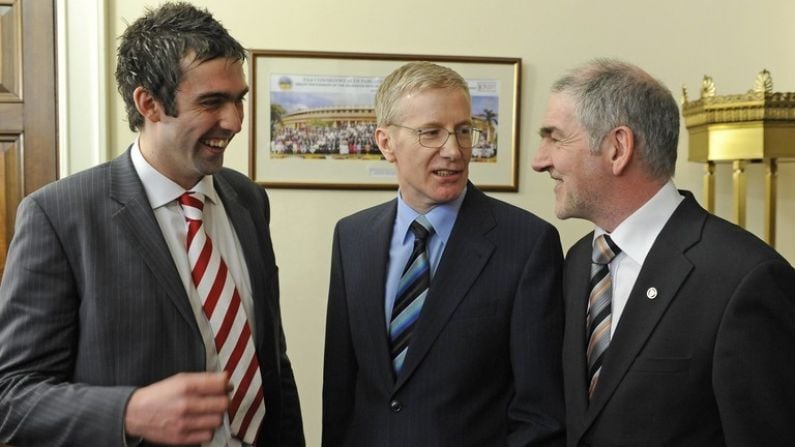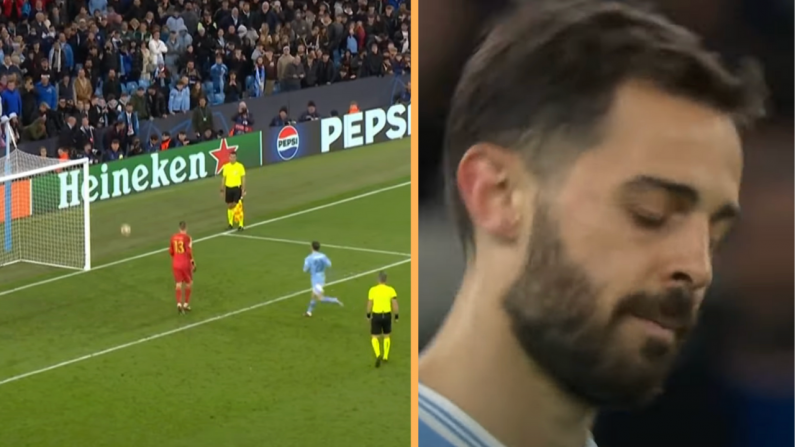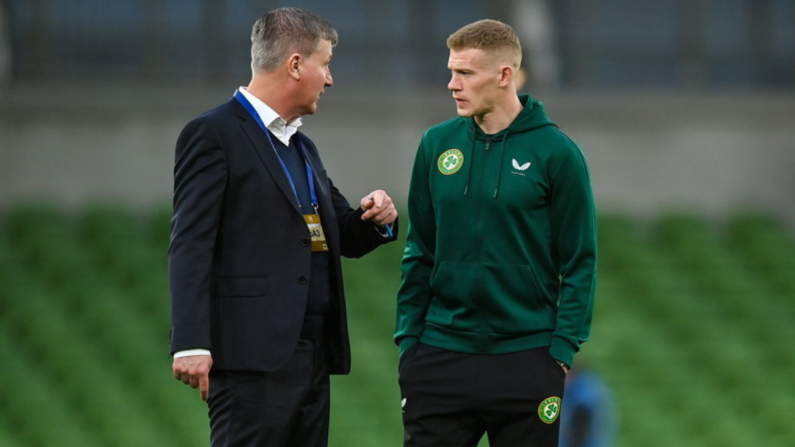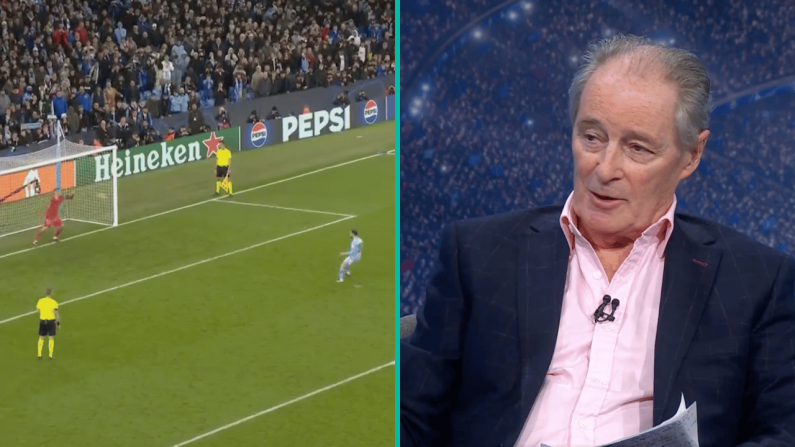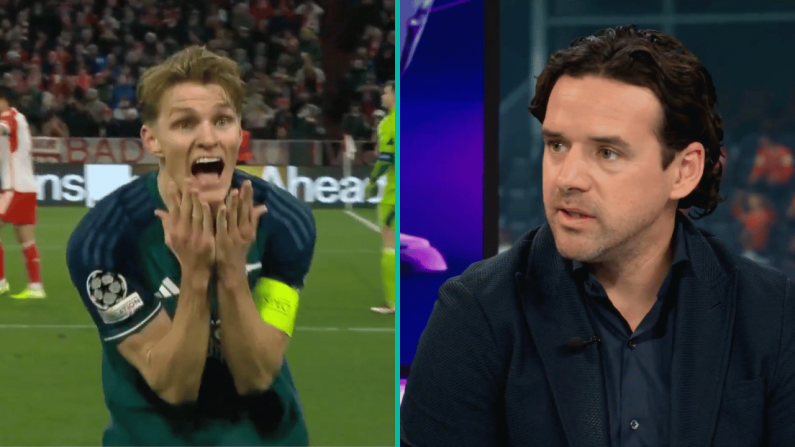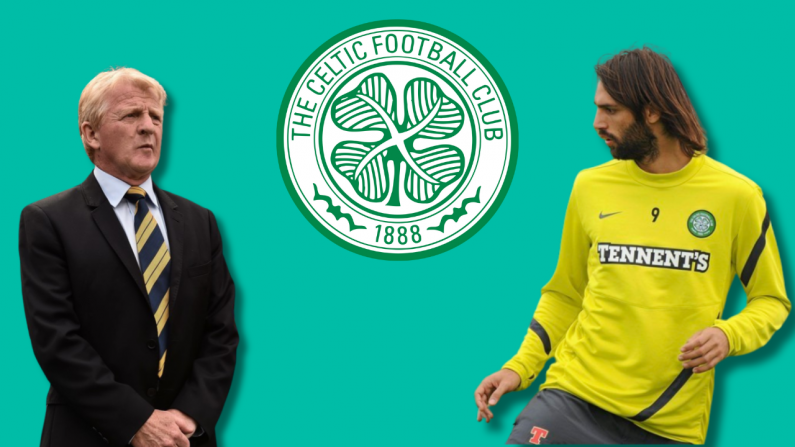'Who are the DUP and what do they stand for' has been the main Google trend of the last twelve hours or so, as it was realised that the Northern Ireland party had the ten seats necessary to prop up the Tories and beleaguered automaton, Theresa May.
But as many media outlets rush to explain their political stance now that they are relevant to England-based political types, little has been written about their stance on various sporting issues.
A report in today's Telegraph claims that among the DUP's demands in return for propping up the government will be the renaming of Team GB to Team UK.
Here's a brief history of the DUP's involvement with a couple of the main sports in Northern Ireland and beyond.
Football
Opposing football on Sundays
Until 2008, the Irish Football Association prohibited any affiliated club from playing football on Sundays, and extended to the Northern Ireland national team. (This was relaxed to allow the side play away games on Sundays This was originally partly out of a respect for the Sabbath, but was continued as a means of combating a perceived encroachment of Catholicism, with Gaelic games frequently fixed for Sunday afternoons.
As the twentieth century gave way to the 2000s, the ban was frequently challenged by various football clubs in the North. Newry Town, for example, agitated to remove the ban in 2000, citing commercial reasons. They failed in their efforts, however, as did subsequent efforts by Cliftonville and Armagh City.
Eventually, in 2006, it was queried legally, on the grounds it did not meet European Court of Human Rights' laws surrounding religious discrimination. With the threat of that legal action hovering over the IFA, they voted to replace the article prohibiting Sunday football with a more modified law, stating that games would not be scheduled for Sundays, but could be played if both teams and the organizing competition agreed. This passed 91-14, despite the fact that the DUP opposed it.
The ban was then lifted in 2008. Linfield still uphold the tradition, while the Northern Ireland national team, but were forced into backtracking on that in 2015. Up to then, dates for qualifying games were decided by discussion between respective football associations. Ahead of qualifying for Euro 2016, however, UEFA had these dates assigned at random by a computer, meaning Northern Ireland played Finland at home on March 29th 2015.
Speaking out against North-born players declaring for the Republic of Ireland
James McClean and Shane Duffy are likely to play for the Republic of Ireland against Austria on Sunday evening, despite playing underage football with Northern Ireland.
Nigel Dodds, then deputy leader of the DUP, spoke out in a bid to stop the "hemorrhaging" of talent in response to James McClean's switching allegiance:
Action should now be taken to stop the haemorrhaging of talent from Northern Ireland. The British and Irish governments should now work to address this injustice which sees footballing talent developed in Northern Ireland, at some considerable cost, lost to compete at international level with the Republic’s team.
No one should be opposed to the idea of talks to resolve this issue, and there is a degree of irony about the demands for free eligibility.
Gregory Campbell vs James McClean
Gregory Campbell - the DUP MP for East Derry (he won't call it that) - has no time for James McClean.
In 2013, for instance, he recommended that the Sunderland manager should sack McClean in response to the footballer tweeting about his love for the song 'Broad Black Brimmer' by the Wolfe Tones.
After McClean did not recognise 'God Save The Queen' ahead of a pre-season friendly with West Brom, Campbell had this to say:
He needs to keep his head down and play football, but what he shouldn’t do while earning money from the UK is set himself up as a controversial pseudo-political figure, which is what he’s doing.
If he didn’t want to sing the national anthem I don’t think anybody would have complained, but he should have had the courtesy and respect to simply stand there.
And then, just a week later, Campbell found himself aggrieved after a council vote changed the name of Londonderry to Derry. McClean tweeted jubilantly in response to the news: "Training finished, gym finished, Derry's getting it's rightful name back, have a great day folks". This infuriated Campbell:
Less than a week ago he was in trouble with his manager for disrespecting the English flag and British national anthem, and now he has waded into the controversy again. This time, it isn't something he was provoked into doing. This was something of his own making.
He may have been able to explain treating the national anthem with disdain by saying he had to walk out with his team and he was put in a position he couldn't avoid, but in this case there is no justification. He proactively sent a tweet and embroiled himself in politics again.
Unsurprisingly, Campell is very critical of McClean's refusal to wear a poppy in honour of Remembrance Day. This from a Facebook post last year:
I see the Londonderry born footballer James McClean is up to his old tricks again. Refusing to wear the poppy on his shirt against Manchester City today. This comes after his ‘lambasting’ Kenny Shiels who made a joke about International Football. He just can’t help himself. For those who say he’s entitled to refuse to wear it, yes he is but being entitled to do something wrong doesn’t make it right. He was wrong to do it previously and he’s wrong now.
Various petty squabbles
Symbols and rituals are more important to the identity of Ulster Unionists than they are to most groups, and naturally, the preponderance football has with such symbols has caused consternation within the DUP.
For example, in November 2015, the SDLP's Declan Boyle proposed that Belfast host a joint reception for Northern Ireland and the Republic of Ireland in City Hall to mark their respective qualification for Euro 2016.
The DUP's Brian Kingston unsurprisingly disagreed:
I welcome the success of four teams from the British Isles qualifying but it would be inappropriate to hold a joint reception for the Northern Ireland squad and a team from another country... People from Northern Ireland can support whatever team they choose, but we encourage them to support Northern Ireland and most of them do.
This came after quite a unique compromise, aimed at wishing the sides good luck in upcoming qualifiers. At Stormont, the DUP proposed a motion officially wishing the Northern Ireland side well. Sinn Féin agreed on the agreement that there was a second motion in support of the Republic of Ireland. The DUP rejected this, but eventually passed it with the caveat that they also wish Scotland well (who were competing directly with the Republic of Ireland in the same qualifying group).
The following year, after the Euros were done and dusted, the England national side were fined £35,000 for wearing poppies on their shirts in a game against Scotland, as it constituted the display of a political system.
DUP MP Damian Collins then tweeted his outrage at a perceived double standard:
Ireland football shirt marking centenary of the Easter Rising. Why won't #FIFA let England wear a poppy @BBCr4today pic.twitter.com/uGTwQr9Q5c
— Damian Collins (@DamianCollins) November 2, 2016
Collins then wrote to FIFA to ask why Ireland had been allowed to mark the Rising on their shirts in a friendly with Switzerland, with the entire saga ending with the FAI being fined €5,000.
Oh, and another DUP MLA aired his grievances over the most recent edition of Football Manager, which predicted a united Ireland at some point within the game's fictional universe.
GAA
The GAA is understandably unpopular within the DUP, and some of the reasons for that were explained by the DUP's Culture Secretary Nelson McCausland in an open letter in the Irish News back in 2004. Here are a couple of excerpts:
This follows a Talkback debate broadcast from Stormont.
At that debate I raised the question of the political dimension of the GAA and said that it was more than just a sporting organisation....
...In fact the GAA has a political agenda: that of Irish nationalism and Irish republicanism.
It is perfectly entitled to have that agenda but it should be open and honest about it and those who provide public funding for the GAA should acknowledge it too.
The body that is being funded is not an ordinary organisation but rather a sporting organisation with a political agenda.
During the debate I also referred to the practice of naming Gaelic grounds, clubs and competitions after republican terrorists and there are many examples.
Croke Park in Dublin was named after the first GAA patron, Archbishop Croke of Cashel.
But the Nally Stand, built in 1952, was named after Patrick William Nally, the first chairman of the Irish Republican Brotherhood, a secret oath-bound terrorist organisation.
One of the highlights of the GAA year is the All-Ireland Gaelic Football final in September when teams compete for the Sam Maguire Cup.
Maguire was a senior IRB member who supplied guns to republican terrorists in Ireland and tried to set up people in England as targets for republican murderers.
Gregory Campbell
Our old friend Gregory Campbell has had an ability to recognise the benefits of the GAA, but has been loathe to embrace it. He caused controversy in 2008 with his comments that the All-Ireland final between Tyrone and Kerry should be considered an "international event" as the competing teams came from different countries. Campbell was sports minister at the time.
Campbell has always called on the GAA to strip itself of its links to a Republican past, and said that "I want to see sport recognised for what it is, without any connotations or linkages that have been perceived to be a cause of division in the past" in 2009, in recognition of the Association's allowing members of Northern Ireland's security forces join as members.
Campbell refused to attend the 2008 All-Ireland final despite being invited by the GAA, but he did commend Peter Robinson, the DUP's former leader, on attending his first GAA game in 2012. Earlier this year, Campbell agreed that the GAA should stop flying the Irish tricolour at matches.
Some more trenchant attitudes
Not all DUP representatives have been willing to see beyond the old issues of symbolism and history.
Ian McCrea, for example, tweeted in 2011 that it was "great to see Tyrone beat in the Ulster semis today, hope Donegal beat Londonderry in the final to keep the celebrations out of Mid Ulster", while Jim Wells courted scorn that same year with comments that GAA clubs should be stopped from fundraising at supermarkets:
It should be genuine charities that need the money, not an organisation that is rolling in money.
Funding problems
In spite of progressive moves made by Peter Robinson in particular, an Irish News report found that only a fraction of the GAA clubs that appplied for a DUP funding scheme were successful.
The scheme is entitled The Community Halls Pilot Programme, and was launched by Arlene Foster a year ago. The Irish News obtained figures which showed that GAA clubs found it difficult to qualify for funding: of a total of 850 applicants to the scheme, 61 were submitted by GAA clubs but only two were approved for funding.
Of the successful applicants, the majority of them had links to loyal groups. Communities minister Paul Givan branded criticism of him and the scheme "narrow-minded sectarianism".

